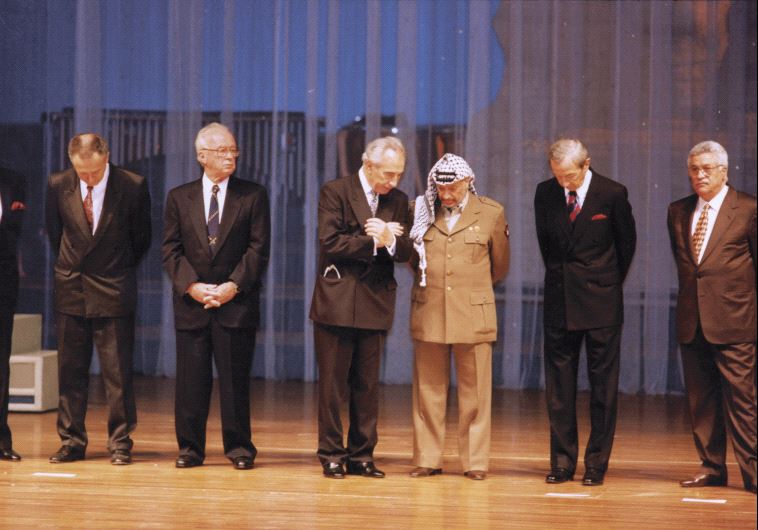Peace icon or impediment to 2-state solution? Palestinians split on Peres
Palestinian leadership and civil society reflect on Peres in light of the former president's deteriorating health.
 Peres and Arafat meet in Cairo Agreement(photo credit: REUVEN CASTRO)Updated:
Peres and Arafat meet in Cairo Agreement(photo credit: REUVEN CASTRO)Updated: